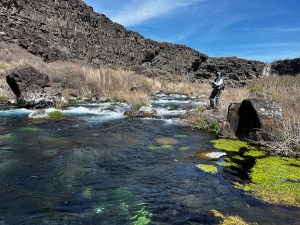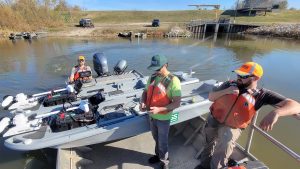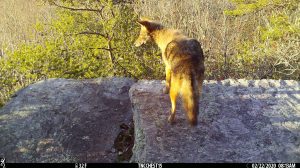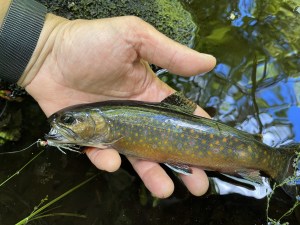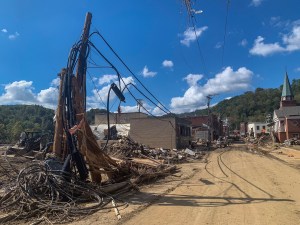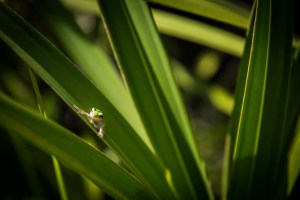Discover stories in United States
A Bird’s Eye View: Drones Search for Grassland Birds in Colorado
At The Nature Conservancy’s Carpenter Ranch Preserve, drones assist in the search for grassland birds.
A Partnership for a Healthier Appalachian Forest
Restoring a healthy Appalachian forest has many benefits, for wildlife and local communities.
Exploring Idaho’s Thousand Springs Region
Crystal clear springs in southern Idaho, a legacy of Nature Conservancy protection efforts, are home to endemic species and offer outstanding recreational opportunities.
The Overlooked Biodiversity of Appalachian Caves
The cave habitats of Tennessee and Kentucky have species that most will never see. Here are some of the unusual creatures found there.
A Kayak in Search of a Fish
In a historic Illinois wetland, a team tackles invasive carp using uncrewed small boats
Pit Stops on the Monarch Flyway: Arkansas Partnership Benefits Pollinators
Restoring pollinator habitat on TNC Preserves to provide critical stops for monarch butterflies to nest and feed.
Camera Trap Chronicles: Rattlesnakes and Howling Coyotes
And more. Coming to you from TNC's Bridgestone Reserve in central Tennessee.
50 Fish, 50 States: Rhode Island’s Wild Brook Trout
Wild brook trout in Rhode Island? Our smallest state provides memorable brook trout fishing.
Elk in the East: A View to a Dramatic Conservation Success
Elk once roamed across much of North America. After more than a century’s absence, they’re thriving in the Appalachians.
After the Disaster: An Asheville Resident on Cleaning Up After the Storm
Eric Seeger recounts his experience in the wake of the historic floods and landslides that hit North Carolina and Tennessee in 2024.
Following Frogs into the Flames
Tree frogs seem to disappear during a forest fire. Do they migrate? Do they die? A researcher set out to find them.
Seeing the Forest for the Community
Charting a new future for forest conservation in the Appalachians must benefit local communities.


